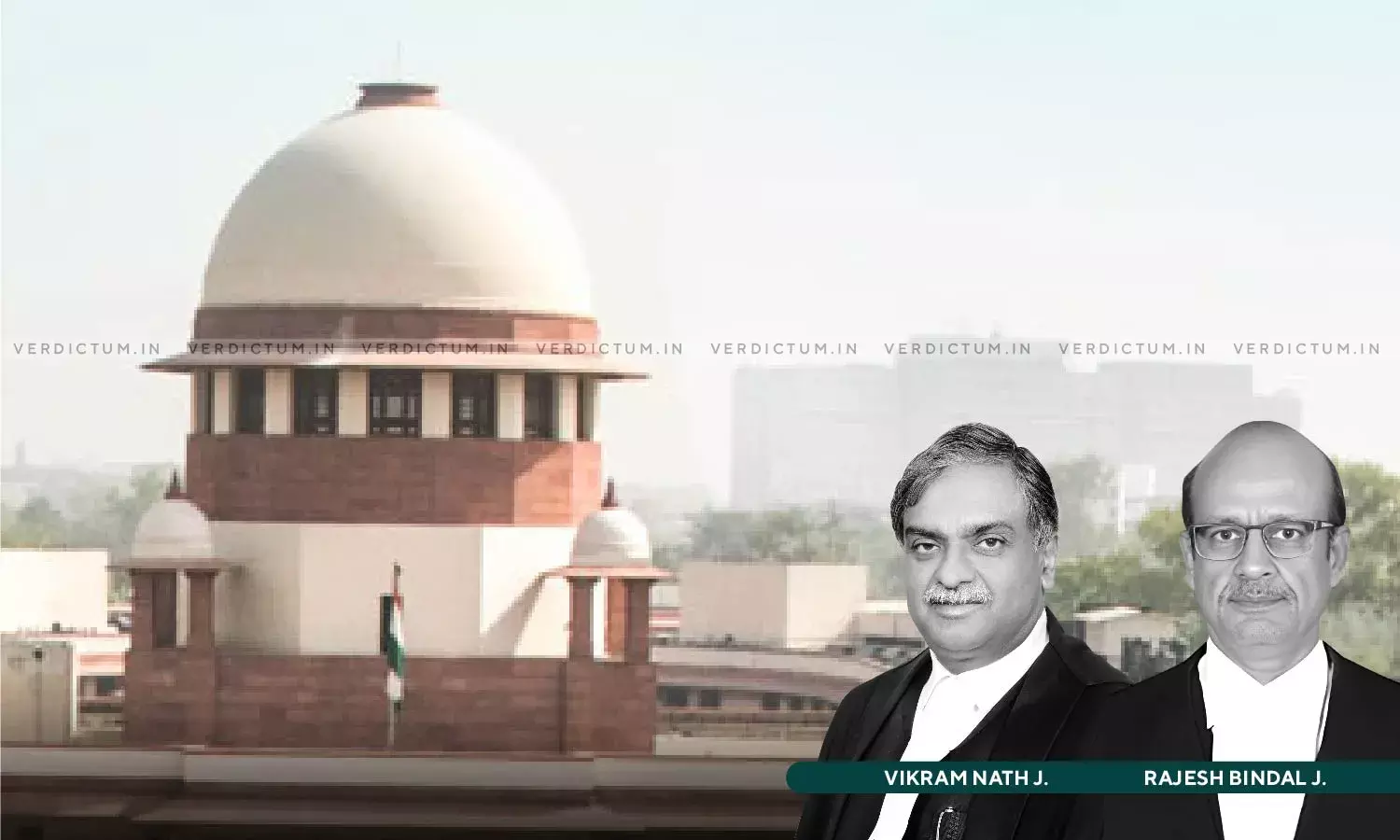Supreme Court Expresses Concern Over Judges Not Following Guidelines In Maintenance Proceedings, Directs Circulation Of Its Judgment In Rajnesh v Neha To All Judicial Officers

The Supreme Court directed the Court’s Secretary General to circulate the Judgment of Rajnesh v Neha and Another, [(2021) 2 SCC 324] to all Judicial Officers as well as the National and State Judicial Academies.
The Court expressed concern over the Trial Court’s approach of fixing maintenance without there being an affidavit on record, disclosing the assets and liabilities of the Parties. The Court noted that the cases that ought to have been concluded at the Trial Court have been taken up to the Apex Court.
“Even after pronouncement of the aforesaid judgment, this Court is still coming across number of cases decided by the courts below fixing maintenance, either interim or final, without their being any affidavit on record filed by the parties”, the Bench comprising Justice Vikram Nath and Justice Rajesh Bindal observed.
Advocate Pragati Neekhra appeared for the Appellant (Minor Daughter Of Respondent).
The Respondent had two children, the Appellant and her brother. Her brother lived with their father while the Appellant lived with her mother. The Father had filed a divorce petition and she along with her mother filed for maintenance under Section 125 of the Criminal Procedure Code (CrPC). The Family Court allowed the divorce petition but partly allowed the maintenance for the minor daughter. The High Court, however, reduced the amount of maintenance. Aggrieved the Mother approached the Apex Court seeking to quash the order of the High Court.
The Court noted that while assessing maintenance under Section 24 of the Hindu Marriage Act, 1955 (HMA) and Section 125 of CrPC, the dictum in the case of Rajnesh v Neha and Another (supra) must be considered. The Court observed that guidelines were issued prescribing a uniform affidavit which ought to be filed disclosing assets and liabilities of the parties in maintenance proceedings.
“Separate Affidavits were provided for agrarian and nonagrarian deponents as the particulars to be furnished by the deponents living in the urban areas are entirely different from those who are living in rural and tribal areas. Separate format of Affidavit has been provided for the residents of the State of Meghalaya considering its special status. It is predominantly a tribal area and follows matrilineal system of society”, the Bench observed.
The Court noted that the impugned order was cryptic and bereft of reasons. Therefore, directed the Secretary General of the Court to re-circulate the aforesaid judgment to all the Judicial Officers, the National Judicial Academy, and the State Judicial Academies as well as the training programs.
Accordingly, the Court disposed of the Appeal.
Cause Title: Aditi Alias Mithi v Jitesh Sharma (2023 INSC 981)

